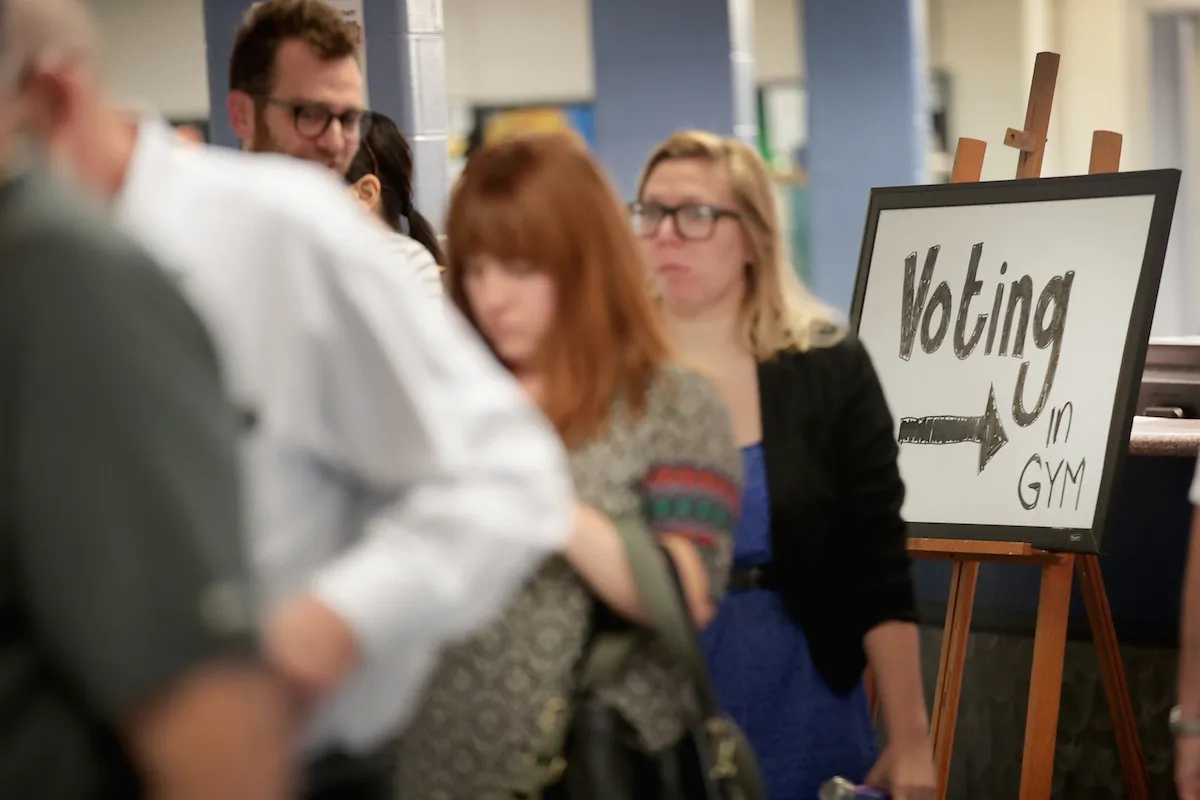Yesterday, voters in five states (Kansas, Washington, Missouri, Michigan, and Ohio) headed to the polls for primaries or special elections. Many of the results are exciting and in line with the recent progressive shift we’ve been seeing nationwide, even in historically red areas. Some of the winners from yesterday are also poised to make history should they win their November races as well.
Here’s what you need to know out of yesterday’s races:
Sharice Davids in Kansas
I’ve written about my love of Sharice Davids before. She’s a gay Native American lawyer, and MMA fighter who loves the Arrowverse and campaigned on a platform of healthcare, reproductive rights, climate change, and gun control. [ETA: Davids was originally described here as an Army vet as well. That was incorrect. Davids’ mother served in the Army for 20 years.]
Yesterday, Davids won a six-way race to become the Democratic Congressional nominee on November’s ballot. If Davids wins then, she’ll be the first-ever Native Congresswoman as well as the first openly queer person to represent Kansas on any level, federal or state. And Kansas is a state that has long been at the forefront of the fight over “religious freedom” (read: legalized anti-LGBTQIA discrimination).
Davids will now face off with Republican nominee Kevin Yoder in November.
Rashida Tlaib in Michigan
We’re all in for Detroit progressive @RashidaTlaib in today’s congressional election in Michigan. #ElectionDay #MI13pic.twitter.com/v6E4iUh5DP
— MoveOn (@MoveOn) August 7, 2018
Rashida Tlaib also won a six-way race to nab the Democratic nomination in Michigan’s 13th District after the district’s former Congressman, John Conyers, resigned over multiple allegations of sexual misconduct.
Tlaib is running on a progressive platform of a $15 minimum wage, Medicare for all, and abolishing ICE.
If she wins in November, she’ll be the first Muslim woman to serve in Congress–or one of the first women, as she’s part of a record wave of female Muslim candidates running for a House seat. (The other women are Deedra Abboud, Ilhan Omar, Fayrouz Saad, and Tahirah Amatul-Wadud.) She would also be the first Palestinian-American woman to serve in Congress. Considering she’s running in a historically blue district with no Republican challenger, a win seems all but guaranteed.
Ohio’s Special Election
Democrat Danny O’Connor faced off against Republican Troy Balderson yesterday in a special election to replace retiring Congressman Pat Tiberi. It looks like the election has been called in favor of Balderson, but the margin is incredibly slim, with Balderson ahead by less than a percentage point—about 1750 votes. (Just in case you don’t think your vote matters, it very much can and does.)
It’s not clear yet whether O’Connor will be asking for a recount, or whether the provisional ballots would make a big enough difference to factor them in. But either way, this race is important. O’Connor barely lost to his Republican opponent in a district that hasn’t elected a Democrat since the 80s. Trump carried the district by more than 11 points in 2016. And this isn’t the end of the race, either.
Because of the timing of Tiberi’s resignation, Balderson and O’Connor will face off again in the regular election this November. O’Connor, who is a far less progressive Democrat than the candidates who are sparking nationwide excitement, says he’s going to be focused on campaigning from now till then.
Right-to-Work in Missouri
In another signal that the Midwest isn’t the flyover blanket of uniformly conservative voters it’s often perceived to be, a “right-to-work” measure was defeated by a 2-to-1 margin. Last year, the state’s Republican legislature and now (allegedly) disgraced governor passed the law, which would ban private sector unions from collecting fees from all employees, including those who are not members, ultimately weakening the strength of unions overall and driving down wages.
Union activists gathered enough signatures to put the issue on the ballot, though, giving voters a chance to veto it. And they did, despite the fact that anti-union groups poured millions of dollars into fighting their opposition, and the GOP even moved the vote from November to August in order to quash turnout. (November will be a big election in Missouri as Republicans aim to unseat incumbant Democratic Senator Claire McCaskill.)
Primary elections don’t normally get voters super excited, but as we’ve seen time and again this year, that’s changing. In fact, one district in Michigan had such an overwhelming turnout, they reportedly ran out of ballots. (The ACLU is investigating that.)
(image: Scott Olson/Getty Images)
Want more stories like this? Become a subscriber and support the site!
—The Mary Sue has a strict comment policy that forbids, but is not limited to, personal insults toward anyone, hate speech, and trolling.—










Published: Aug 8, 2018 02:08 pm